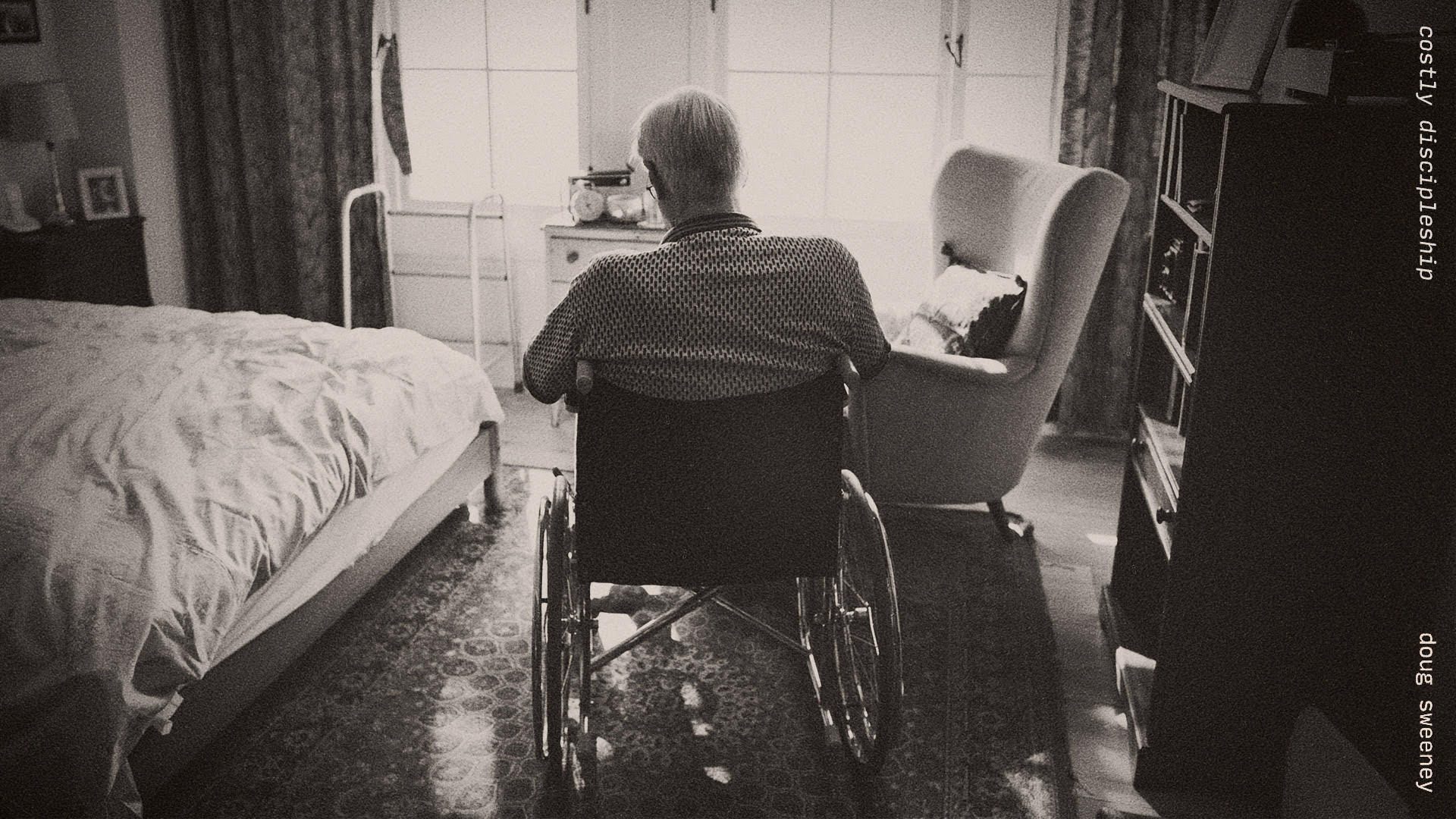When I was growing up in the 1970s, my grandfather founded a ministry to seniors in and around Portland, Oregon. He’d recently retired from many years of pastoral leadership and sought to stay active in ministry to others. Noticing a big need in their community for service to the elderly, he and my grandmother stepped up to serve with a few good friends.
Their Nursing Home Ministries offered preaching, worship services, and pastoral care to several thousand men and women (in a couple of dozen homes) in the golden years of life. When I visited my grandparents, they took me on their rounds to see people in these homes. The seniors we visited were always glad to see a little boy. Nearly 50 years later, I retain vivid memories of these people and the edifying times we shared together.
My parents now live in a retirement facility that’s run by Christians and offers chaplaincy services. But so many senior citizens go without any serious discipleship ministry. Too few churches or pastors offer ministry to seniors that exceeds what happens in age-based small groups and infrequent home visits.
Enduring Usefulness
Seniors often think they’re too old to be useful outside their families. When it comes to church work, they often withdraw to “give the young people a chance,” as some of them insist. They don’t like to drive at night, if at all—and they’re hesitant to ask younger friends for a ride. Sometimes it’s because they don’t have younger friends. They don’t want to be a burden, and perhaps the young people they do know haven’t shown much interest in their lives.
Too few churches or pastors offer ministry to seniors that exceeds what happens in age-based small groups and infrequent home visits.
Many older mainline churches reserve resources for ministry to seniors. Many younger evangelical congregations, though, pursue growth by designing church cultures that are youthful, casual, fast-paced, and high-tech—inadvertently leaving seniors feeling ignored or, at best, in the way.
It should come as no surprise, then, that many older adults are declining in discipleship. In the very season of life when they should focus more than ever on preparing to be with God, they’re stagnating spiritually, sometimes even departing from the faith.
Few pollsters have quantified this. But in the summer of 2011, Barna ran a survey of “religious changes” among “busters, boomers, and elders.” They discovered that church attendance had plummeted among those now in their seniority. Engagement in churches and involvement in regular discipleship practices among those surveyed had fared even worse. Anyone involved in church leadership today knows these numbers have not likely improved in recent years.
There are now more than 54 million senior citizens (age 65 and older) living in the United States. They make up 16 percent of the general population, and this is expected to grow to nearly 22 percent by 2040.
Fighting to the Finish, Together
It’s time to step up our efforts at ministering to (and with) these older brothers and sisters. They have so much to contribute to the church. “Wisdom is with the aged, and understanding in length of days” (Job 12:12). But they need help discerning how best to mature in faith and practice as their bodies decline. They need encouragement to finish their race with endurance, resilience, and joy.
Our seniors need to know that our churches still want them, that our people still believe that “gray hair is a crown of glory . . . gained in a righteous life” (Prov. 16:31). Seniors need to be persuaded that we want them to teach us “what accords with sound doctrine,” that we need our older men to show us how to be “sober-minded, dignified, self-controlled, sound in faith, in love, and in steadfastness,” that we need our older women to be “reverent in behavior, not slanderers or slaves to much wine [and] to teach what is good” (Titus 2:1–3). I wonder, though, whether the average church member today thinks much about these things. Perhaps they need pastors to remind them what the Scriptures say about our life together.
They need encouragement to finish their race with endurance, resilience, and joy.
My hope is that our seniors will dare to cry out, “So even to old age and gray hairs, O God, do not forsake me, until I proclaim your might to another generation, your power to all those to come” (Ps. 71:18). And I hope that countless younger members will show themselves eager to receive such instruction.
All of us should live like we trust that the righteous “still bear fruit in old age; they are ever full of sap and green, to declare that the LORD is upright” (Ps. 92:14–15). All of us should do what we can to keep seniors from feeling insignificant. “Though our outer self is wasting away,” we might well remind them, “our inner self is being renewed day by day” (2 Cor. 4:16–17).
The whole body of Christ needs our seniors to pray for us, advise us, and support us. But this won’t happen well, at least not with regularity, unless pastors and members intentionally reach out and challenge them to grow—even in their old age.
Dear seniors, please show us how to live in light of eternity. Show us how to wean our affections from the world. Show us how to prepare for life in heaven and the new Jerusalem. We need you!
